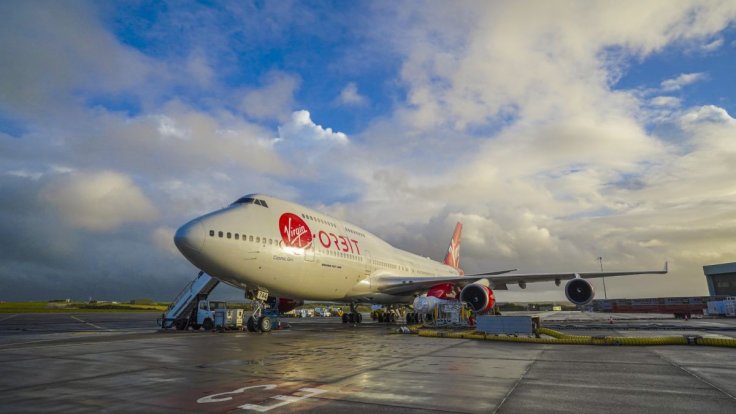The historic Virgin Orbit space flight was called shortly after mid-flight because of an "anomaly" that prevented it from reaching orbit.
It was set to release satellites from the LauncherOne rocket from Sir Richard Branson's Cosmic Girl jet. Virgin Orbit, which launched the mission from Spaceport Cornwall, said it would tirelessly investigate what had caused the failure.
In an official statement, it said the customized Boeing 747, Cosmic Girl, had successfully released the LauncherOne rocket, which carried the payload of military and civilian satellites, in the designated drop-zone off the southern coast of Ireland. The excitement and applause of 2,000 lucky ticketholders came to an abrupt end when the launch operator revealed that the rocket had failed to deploy its payload of nine satellites.

Technical Failure
"The rocket then ignited its engines, quickly going hypersonic and successfully reaching space. The flight then continued through successful stage separation and ignition of the second stage. However, at some point during the firing of the rocket's second stage engine and with the rocket travelling at a speed of more than 11,000 mph, the system experienced an anomaly, ending the mission prematurely," said Virgin Orbit.
Dan Hart, CEO Virgin Orbit, said they are very proud of the many things that they have successfully achieved as part of this mission. "We are mindful that we failed to provide our customers with the launch service they deserve. The first-time nature of this launch added layers of complexity that our team professionally managed, however, in the end a technical failure appears to have prevented us from delivering the final orbit," he said.
Hart assured that Virgin Orbit will work tirelessly to understand the nature of the failure and make corrective actions, and return to orbit as soon as they have completed a full investigation and mission assurance process. Virgin Orbit said this was the first to fall short of their target orbits. But it had demonstrated that space launch was achievable from UK soil.
Always Has Risks
Matt Archer, UK Space Agency's director of commercial spaceflight, believes that launching a spacecraft always carries significant risks. He said the project has succeeded in creating a horizontal launch capability at Spaceport Cornwall. "We remain committed to becoming the leading provider of commercial small satellite launch in Europe by 2030, with vertical launches planned from Scotland.









